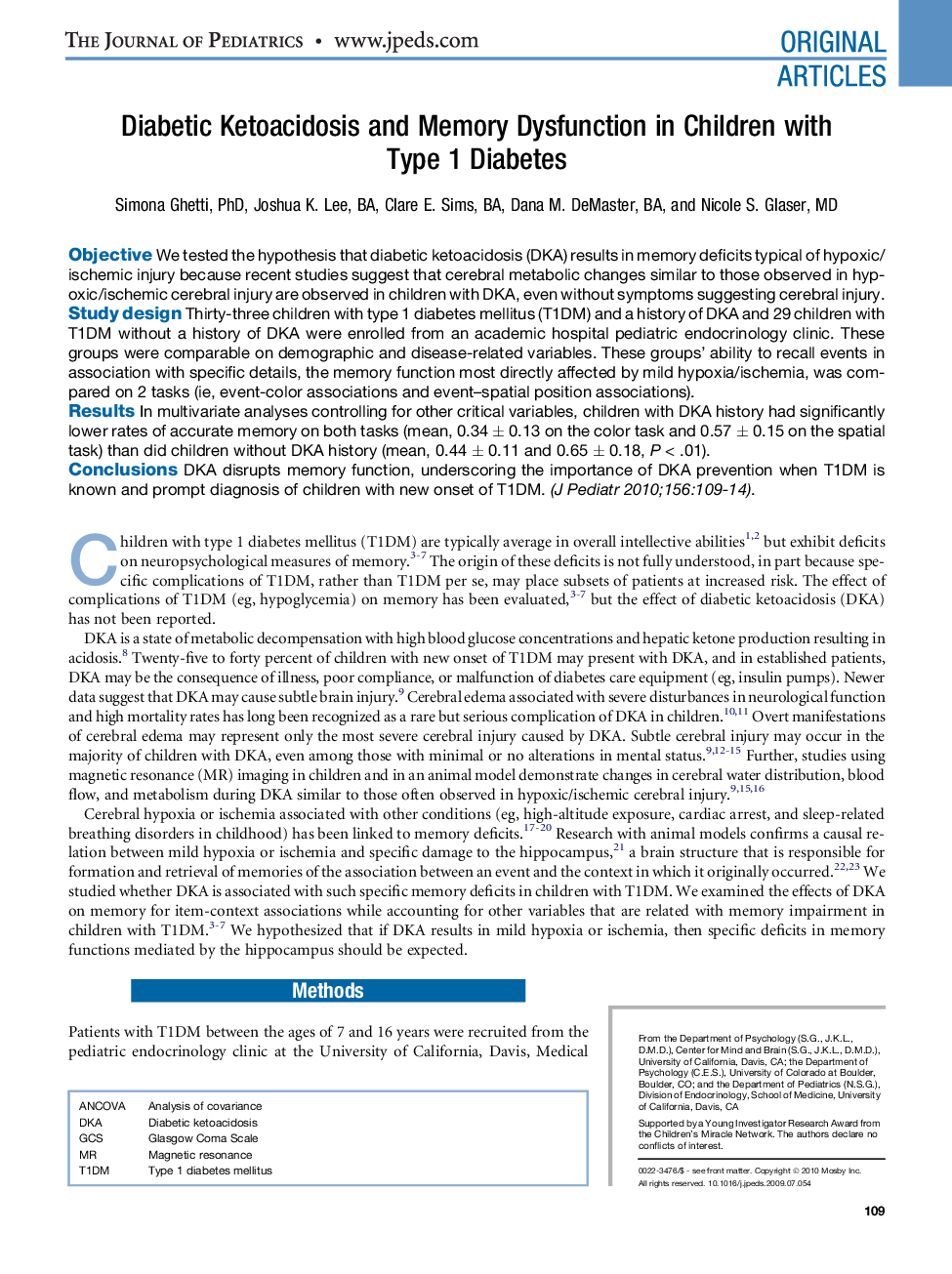| Article ID | Journal | Published Year | Pages | File Type |
|---|---|---|---|---|
| 4166148 | The Journal of Pediatrics | 2010 | 6 Pages |
ObjectiveWe tested the hypothesis that diabetic ketoacidosis (DKA) results in memory deficits typical of hypoxic/ischemic injury because recent studies suggest that cerebral metabolic changes similar to those observed in hypoxic/ischemic cerebral injury are observed in children with DKA, even without symptoms suggesting cerebral injury.Study designThirty-three children with type 1 diabetes mellitus (T1DM) and a history of DKA and 29 children with T1DM without a history of DKA were enrolled from an academic hospital pediatric endocrinology clinic. These groups were comparable on demographic and disease-related variables. These groups' ability to recall events in association with specific details, the memory function most directly affected by mild hypoxia/ischemia, was compared on 2 tasks (ie, event-color associations and event–spatial position associations).ResultsIn multivariate analyses controlling for other critical variables, children with DKA history had significantly lower rates of accurate memory on both tasks (mean, 0.34 ± 0.13 on the color task and 0.57 ± 0.15 on the spatial task) than did children without DKA history (mean, 0.44 ± 0.11 and 0.65 ± 0.18, P < .01).ConclusionsDKA disrupts memory function, underscoring the importance of DKA prevention when T1DM is known and prompt diagnosis of children with new onset of T1DM.
